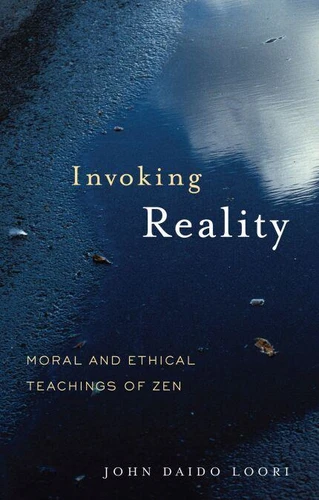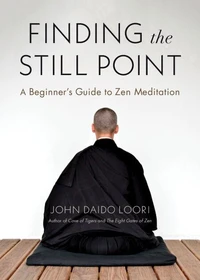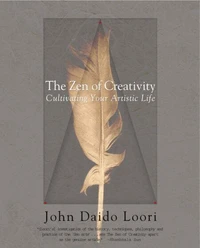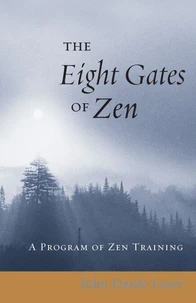Invoking Reality. Moral and Ethical Teachings of Zen
Par :Formats :
Disponible dans votre compte client Decitre ou Furet du Nord dès validation de votre commande. Le format ePub protégé est :
- Compatible avec une lecture sur My Vivlio (smartphone, tablette, ordinateur)
- Compatible avec une lecture sur liseuses Vivlio
- Pour les liseuses autres que Vivlio, vous devez utiliser le logiciel Adobe Digital Edition. Non compatible avec la lecture sur les liseuses Kindle, Remarkable et Sony
- Non compatible avec un achat hors France métropolitaine
 , qui est-ce ?
, qui est-ce ?Notre partenaire de plateforme de lecture numérique où vous retrouverez l'ensemble de vos ebooks gratuitement
Pour en savoir plus sur nos ebooks, consultez notre aide en ligne ici
- Nombre de pages112
- FormatePub
- ISBN978-0-8348-2450-8
- EAN9780834824508
- Date de parution19/06/2007
- Protection num.Adobe DRM
- Taille1 Mo
- Infos supplémentairesepub
- ÉditeurShambhala
Résumé
There is a common misconception that to practice Zen is to practice meditation and nothing else. In truth, traditionally, the practice of meditation goes hand-in-hand with moral conduct. In Invoking Reality, John Daido Loori, one of the leading Zen teachers in America today, presents and explains the ethical precepts of Zen as essential aspects of Zen training and development. The Buddhist teachings on morality-the precepts-predate Zen, going all the way back to the Buddha himself.
They describe, in essence, how a buddha, or awakened person, lives his or her life in the world. Loori provides a modern interpretation of the precepts and discusses the ethical significance of these vows as guidelines for living. "Zen is a practice that takes place within the world, " he says, "based on moral and ethical teachings that have been handed down from generation to generation." In his view, the Buddhist precepts form one of the most vital areas of spiritual practice.
They describe, in essence, how a buddha, or awakened person, lives his or her life in the world. Loori provides a modern interpretation of the precepts and discusses the ethical significance of these vows as guidelines for living. "Zen is a practice that takes place within the world, " he says, "based on moral and ethical teachings that have been handed down from generation to generation." In his view, the Buddhist precepts form one of the most vital areas of spiritual practice.
There is a common misconception that to practice Zen is to practice meditation and nothing else. In truth, traditionally, the practice of meditation goes hand-in-hand with moral conduct. In Invoking Reality, John Daido Loori, one of the leading Zen teachers in America today, presents and explains the ethical precepts of Zen as essential aspects of Zen training and development. The Buddhist teachings on morality-the precepts-predate Zen, going all the way back to the Buddha himself.
They describe, in essence, how a buddha, or awakened person, lives his or her life in the world. Loori provides a modern interpretation of the precepts and discusses the ethical significance of these vows as guidelines for living. "Zen is a practice that takes place within the world, " he says, "based on moral and ethical teachings that have been handed down from generation to generation." In his view, the Buddhist precepts form one of the most vital areas of spiritual practice.
They describe, in essence, how a buddha, or awakened person, lives his or her life in the world. Loori provides a modern interpretation of the precepts and discusses the ethical significance of these vows as guidelines for living. "Zen is a practice that takes place within the world, " he says, "based on moral and ethical teachings that have been handed down from generation to generation." In his view, the Buddhist precepts form one of the most vital areas of spiritual practice.











